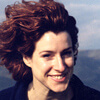Paperbark Camp
Jervis Bay, South NSW Coast, Australia
Reviewed by
Nadine Mellor
After a 3-hour journey down the Princes Highway from Sydney, a brilliant flash of parrots in the canopy of gum trees welcomes you to Paperbark Camp. It centres around 'The Gunyah', an architect-designed, high-stilted house of timber and corrugated iron, which houses an airy restaurant, kitchen and reception. Paths leads to tranquil Currambene Creek where you can launch canoes; other trails lead into deep eucalypt forest for kangaroo-spotting and choirs of birds at dawn.
Irena and Jeremy Hutchings were inspired by their visit to Honeyguide in Africa to create a luxury tented camp on home soil. It took 10 years to realise their vision. They chose the white-sand horseshoe of Jervis Bay for its wonderful national parks, its wealth of activities from whale-watching to diving, and its sheer beauty. After waiting 4 years for planning permission, they created one of Australia's most eco-sensitive lodges on its protected wetlands: no large trees were felled, furniture is hand-crafted from offcuts, and the treehouse-style canvas tents are solar-powered. Magical.
Irena and Jeremy Hutchings were inspired by their visit to Honeyguide in Africa to create a luxury tented camp on home soil. It took 10 years to realise their vision. They chose the white-sand horseshoe of Jervis Bay for its wonderful national parks, its wealth of activities from whale-watching to diving, and its sheer beauty. After waiting 4 years for planning permission, they created one of Australia's most eco-sensitive lodges on its protected wetlands: no large trees were felled, furniture is hand-crafted from offcuts, and the treehouse-style canvas tents are solar-powered. Magical.
Highs
- This is grown-up camping: comfortable, romantic and great fun (no kids under 10 are allowed due to the terrain)
- Delicious and inventive gourmet menu at the tree-level restaurant
- Pristine creeks, beaches, birds and woodland to explore on foot, bike, canoe or horseback
- Delightful welcome and friendly helpful service from your hosts
Lows
- Camping, albeit of a posh kind, isn't for everyone
- Due to the swampy wetlands, mozzies can be annoying when outdoors (particularly in the humid months of January and February) but tents are screened and good repellent is provided
- Activities are outdoor-based, so not much fun if it rains, and staying in the tents would get a bit claustrophobic
Best time to go
The summer (November-March) is perfect for swimming, canoeing, surfing and boat trips, though it can get busy and humid. Many prefer to come in autumn (March-May), when it's quieter and the water is still warm enough to swim in; or in spring (September-November) when you have a chance of seeing the whales. June and July can bring bright, crisp days - and there are no bugs! - though it gets very chilly at night.
Our top tips
Take books to read, binoculars for wildlife and bird watching, good boots if you want to walk and go riding, clothes for dinner and also for adventuring. The camp provides a very effective 'Mozzie F.O.' repellent.





